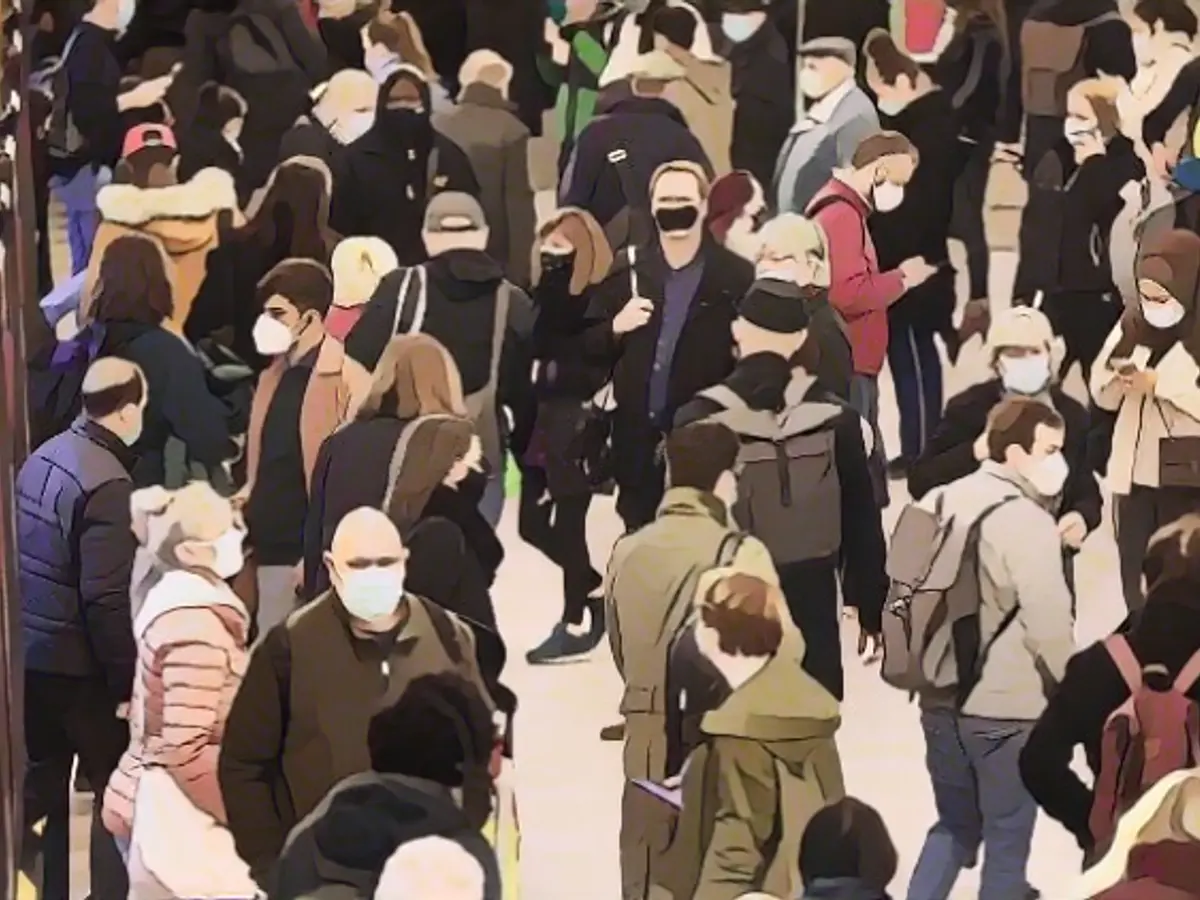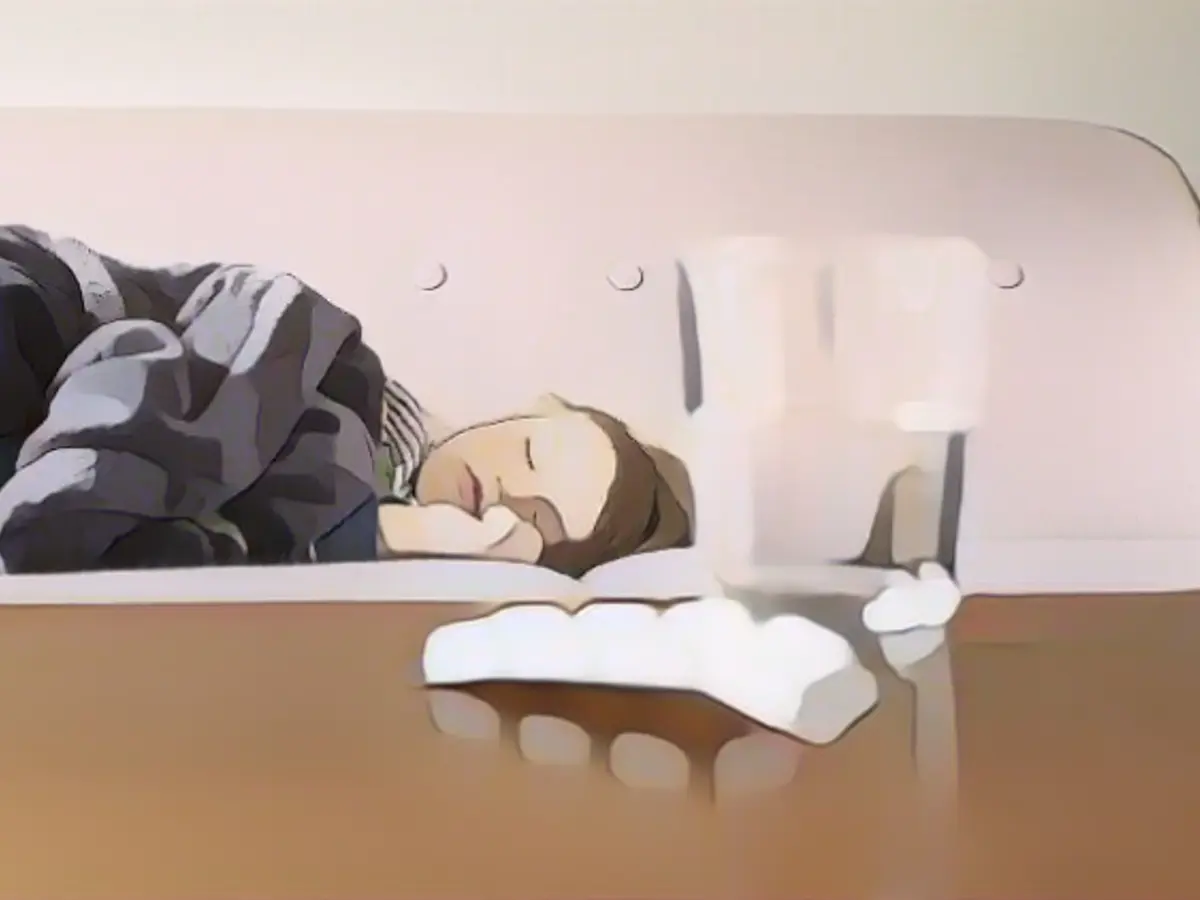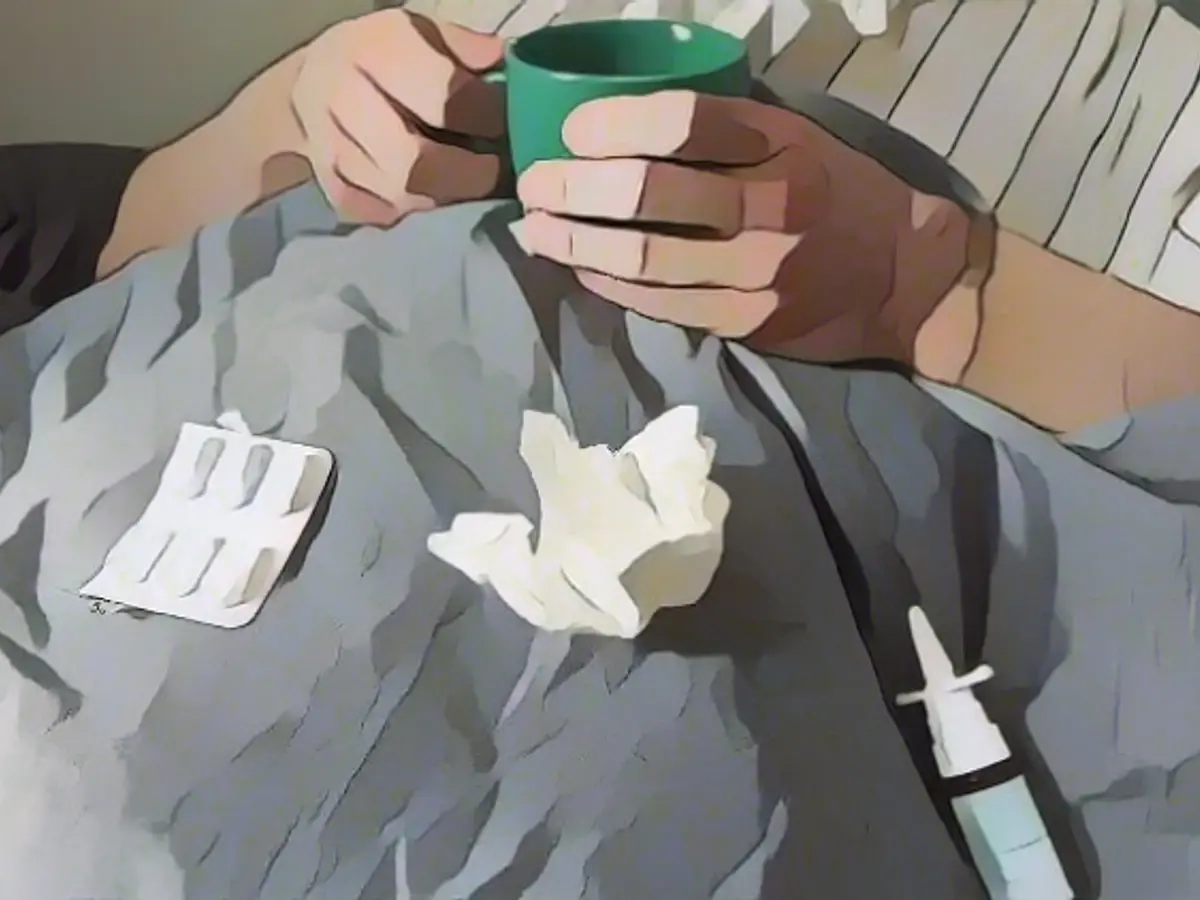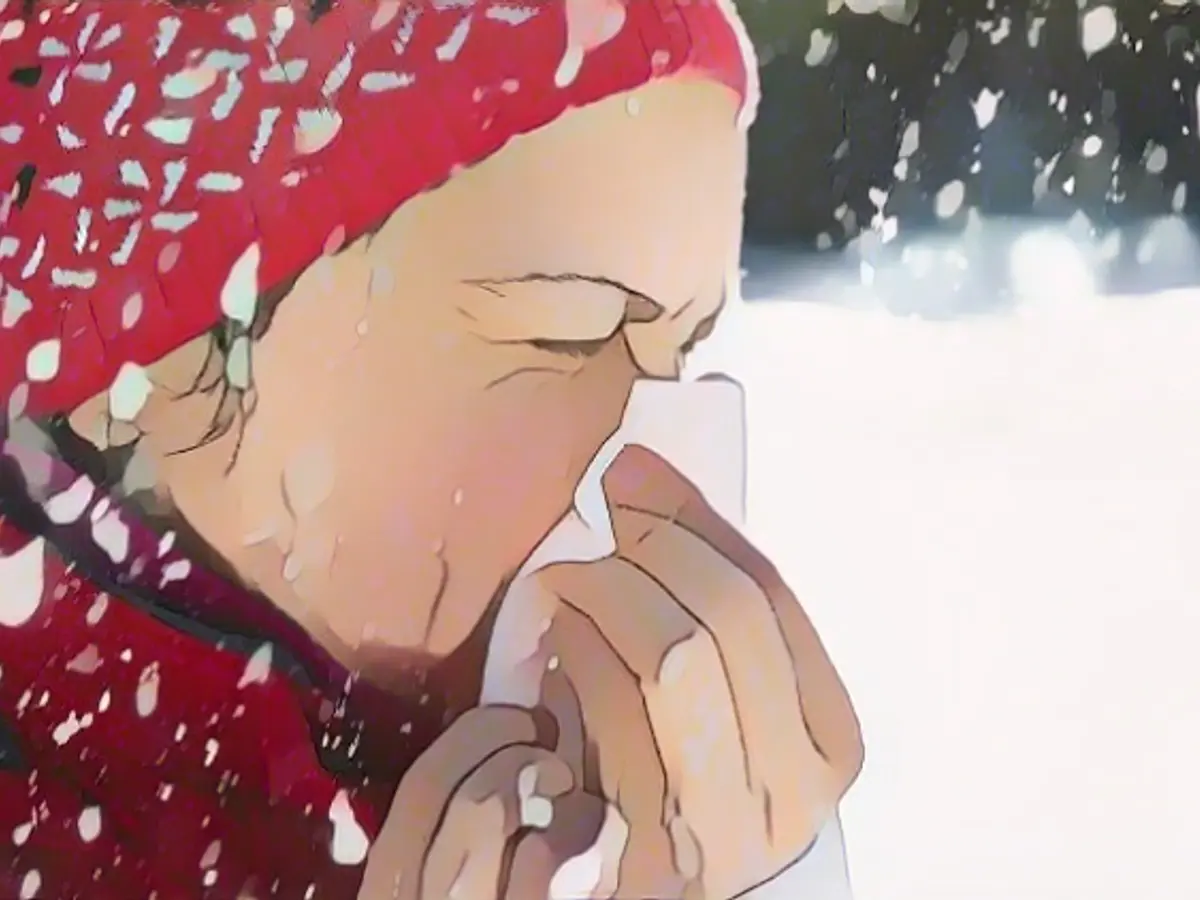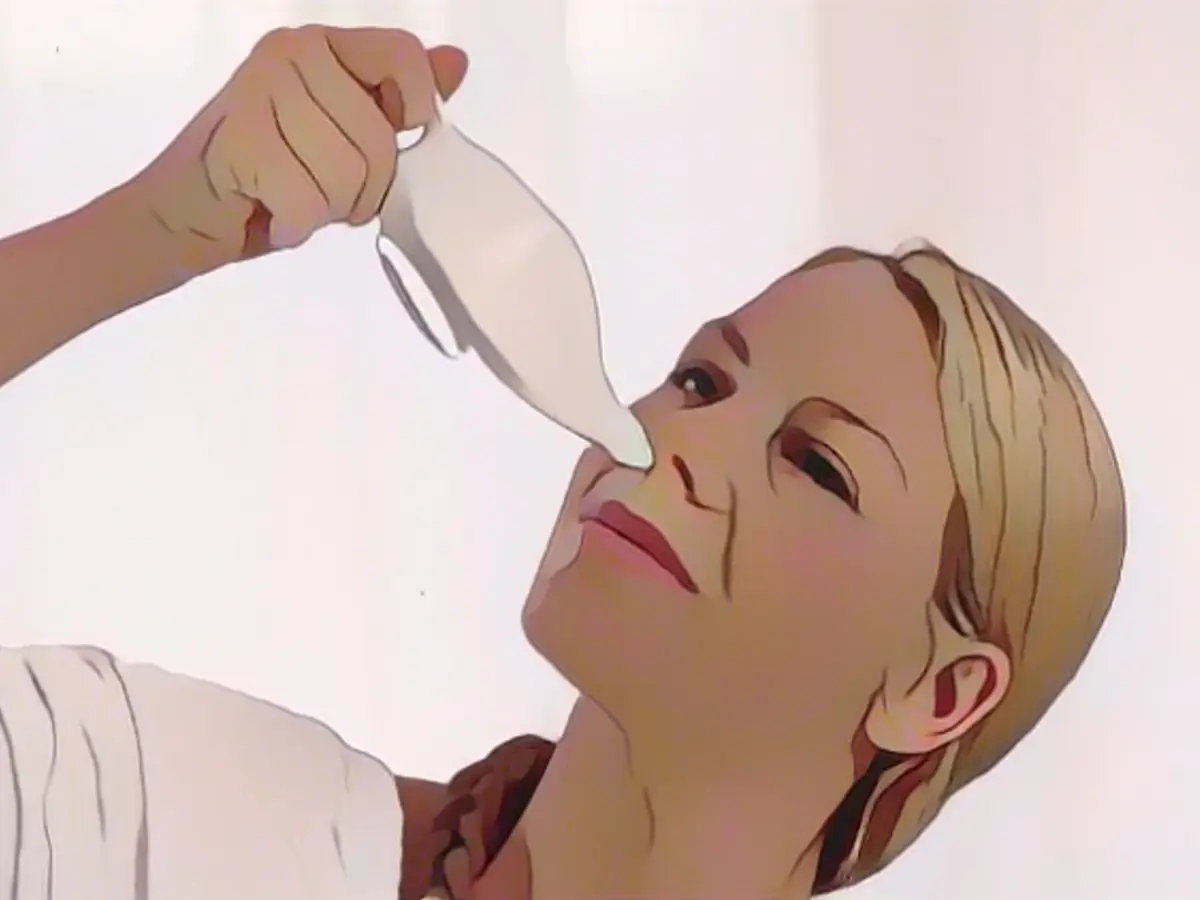Mask Up Again? A Perspective on Virus Protection
The surge of illnesses is causing a stir, bringing back memories of the coronavirus pandemic. With the increase of respiratory infections, people are turning to protective masks once more. A physician walks us through the situation and when using masks makes sense.
It's a sight we hadn't seen in a while – people wearing masks once again. On the train, in the supermarket, or at the doctor's office, people are donning protective gear around their faces. It's not mandatory, but the reason seems clear – a significant wave of illnesses is affecting Germany.
The gust of disease recalls the coronavirus pandemic. While common flu and cold viruses are present, returning variants of corona are also on the rise this autumn. Although they pose threats to the elderly and immunocompromised, the scenario today is quite different from last year or previous years. Coronavirus is now considered endemic, and many people have strong immunity against it due to vaccinations, infections, or a combination of both.
The possibility of widespread severe cases or an overload on the healthcare system is unlikely, according to most experts. Nevertheless, protecting yourself from infection is always an option, says prevention and medical journalist Dr. Christoph Specht in an interview with ntv.de. This applies to sensitive individuals and those who wish to avoid falling ill before important events. Specht emphasizes the importance of avoiding crowds in enclosed spaces and, when appropriate, wearing masks.
Crucial Factors in Mask Use
For masks to be effective, proper fit is crucial. This issue is particularly common with FFP2 masks, which sometimes don't fit well on women's faces. The gap between the nose and the mask is formed due to the size being either medium or large. Specht explains that, in such cases:
"It's simple physics: air always seeks the path of least resistance."
Most of the air then enters the body through the small gap in the ill-fitting mask. Improperly fitted masks significantly reduce their protective function or, in the worst-case scenario, render them ineffective.
In such situations, a surgical mask may be a better option, as it usually fits better and provides reliable protection against viruses in the aerosol. However, beards can present another challenge, as they hinder the mask from fitting snugly around the face.
Masks: Mandatory or Optional?
Though individual mask use is essential, it is not the only factor. Some hospitals have reintroduced coronavirus measures by making masks mandatory for visitors to protect against rising infection rates in hospitals. While a general mask requirement is unlikely, this decision might stem from last year's experience with poor mask use.
Dr. Specht highlights that:
"Studies have shown that the mask requirement had little to no effect on infection rates."
Although masks don't necessarily prevent the virus from spreading in all situations, they can offer individual protection against pathogens when fitted correctly.
The ongoing wave of respiratory infections, which includes common flu and cold viruses, remains a concern, as well as coronavirus variants, such as Sars-Cov-2. While vaccinations, infections, or a combination of both have provided most people with strong immune protection against coronaviruses, appropriate mask use is vital, especially for sensitive individuals.
Ensure a secure fit to prevent large gaps, especially for women with small faces or individuals with beards, as improper fit reduces the protective function of masks.
Enrichment Data:
The current recommendations for wearing masks to protect against viruses, including new coronavirus variants, are as follows:
- Masking for COVID-19 - Wearing masks is recommended for people who test positive for COVID-19 to prevent its spread. High-quality masks, such as N95 or KN95 respirators, are particularly beneficial due to their superior fit and filtration capabilities.
- High-Risk Situations - While avoiding high-risk situations is ideal, a high-quality mask is crucial if you suspect exposure to a virus and will be in contact with vulnerable individuals.
- General Prevention - If you get sick with a respiratory virus, including COVID-19, wearing a mask is recommended to curb disease spread. Enhanced precautions are particularly important to protect sensitive populations.
- Additional Precautions - Following your recovery, maintain additional measures like wearing a mask and maintaining distance for the next 5 days to minimize the spread of respiratory viruses.
